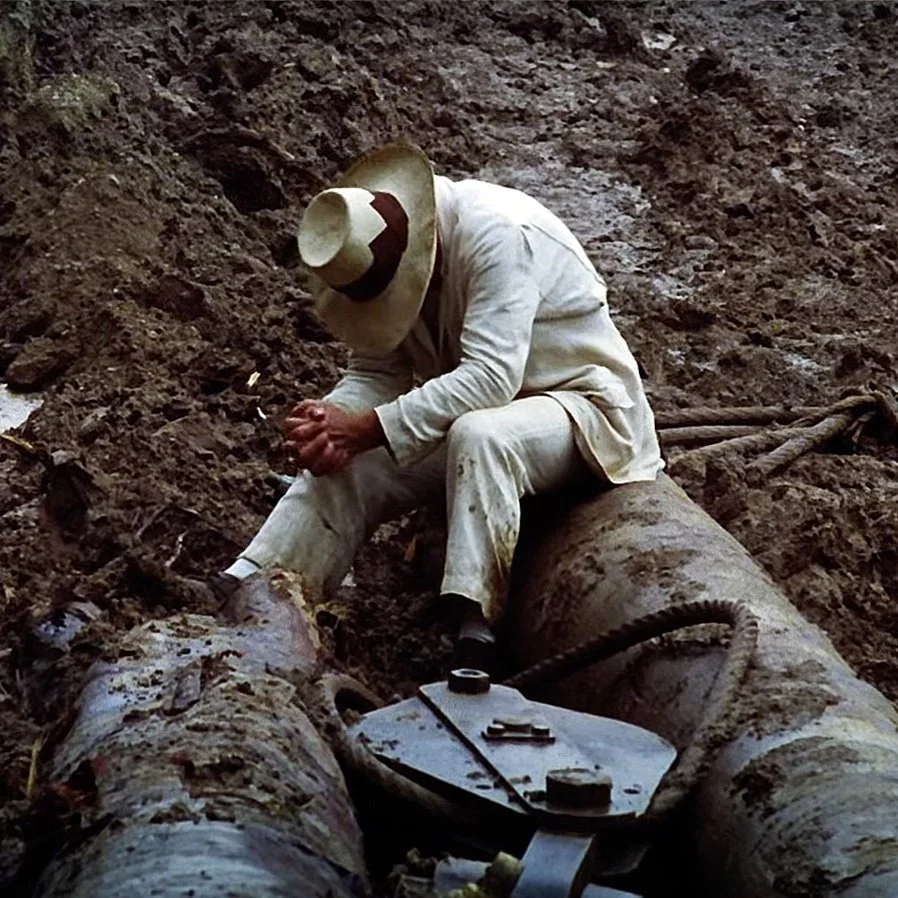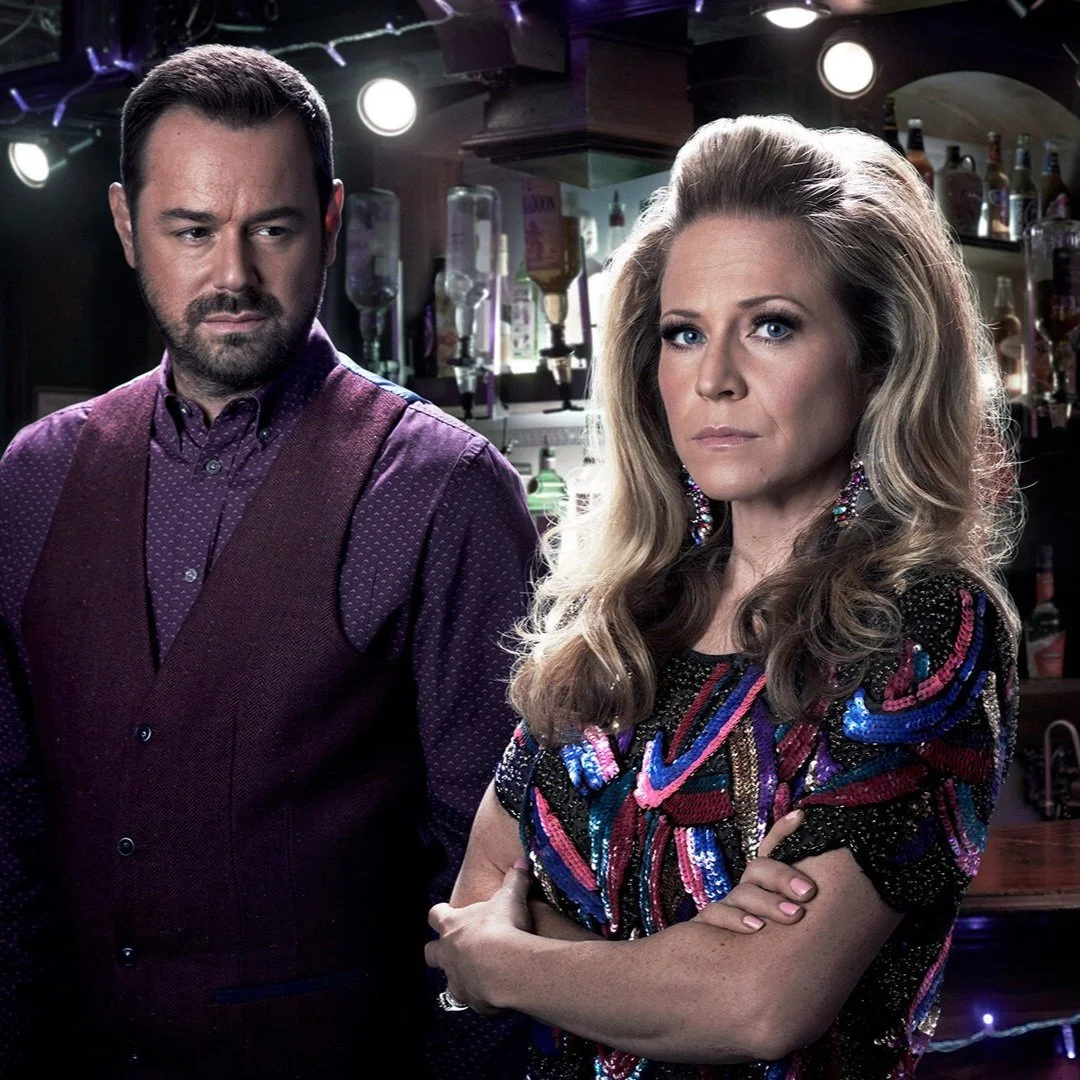Beanpole’s Frozen Trauma
Kantemir Balagov, 2019
The icy Leningrad wind blows through the soulless, gray buildings. The equally soulless, gray people recovering from the immediate aftermath of The Second World War blow through the streets like torn pieces of newsprint. These frigid streets mask the squalid desperation of those who’ve survived, and look to make the transition into what will become the post-war Soviet socialist state. It’s a moment beautifully frozen in time, but also the moment we first meet Iya (played by the incredible Viktoria Miroshnichenko), frozen in place not by the weather, but by the temporary immobility of post-concussion syndrome. Her voice in close-up crackles and she trembles as her muscles spasm. All we hear is a distant ringing, and the drowned voices of the blurred figures she works with in the infirmary. The shot uncomfortably lingers. We are forced to watch ever closer, increasingly drawn into her suffering.
As the ringing subsides, Iya recovers her composure, and returns to the world, free of her temporarily emotional and incapacitating bondage. She towers over her nursing colleagues, earning her the eponymous nickname Beanpole, where she works in an infirmary to care for a small number of injured Russian soldiers, recovering from their time at the front. Some are injured in highly visible, graphic ways. Others are more injured in ways we can only imagine. As she goes about her daily routine between work and home, we find she cares for an undersized three-year-old boy, Pashka, who is not only underdeveloped physically, but also emotionally, having been born on the Russian front to Iya’s close friend Masha (played equal to Miroschnichenko’s excellence by first time actress Vasilisa Perelygina), who is set to return from the advance on the Russian front in Berlin.
As small as he is, Pashka is an enormous source of pleasure for Iya, as they play around the tiny apartment. Pashka visits the patients, where they struggle to play charades with him as he struggles to identify the animals they imitate. As Iya cares for Pashka one evening, they chase each other around their squalid apartment, and collapse on the floor as Iya cuddles and hugs Pashka tightly. But all is not well. The ringing eerily emerges from the distance, Iya freezes, and in one of the most incredibly touching but terrifying scenes, smothers Pashka to death. As with much Russian cinema, the cinematography is breathtaking, but fearless about taking its time to adequately tell the story. The shots linger, the silences draw out, and the agonizing last gasps of the smothered child are held uncomfortably long as we too hold our breath in the audience. It’s an incredibly powerful treatment of a sincere love gone disastrously wrong.
A few days later, Masha arrives to stay with Iya, and in the darkness of her arrival, asks where Pashka is, learning of his fate, although Iya hides the exact details and her own culpability. Eager to replace Pashka, Masha becomes swiftly determined to conceive at any cost, even though she’s physically no longer able to do so after the abuse of several brutal abortions. We are witness to the large scars on her stomach and the intimate details of her infertility. Joining Iya as an orderly in the infirmary, we learn a little of their backstory, and find that they were both gunners on the Russian front, and when Iya was invalided out, Masha fought on, eventually fighting in the liberation of Berlin. She’s decorated for her efforts, but performs menial work in service of the often helpless patients. One in particular seeks to be euthanized, and when the head Doctor Ivanovich (Andrey Bykov) refuses, Iya steps in and performs the necessary duties. But she’s seen by Masha, who uses the opportunity to blackmail Ivanovich into sleeping with Iya in order for her to have another baby of her own. Against their will, both Iya and Ivanovich awkwardly, and unsuccessfully attempt to conceive, as the highly introverted and sexually immature Iya grows increasingly jealous of a real relationship Masha is developing with a local boy, Sasha.
As Iya finds out she’s not pregnant, Masha tries on a dress a neighboring seamstress has made for her. As she twirls over and over, she turns from joy to anguish, unable to stop her spinning, and the twirls turn to terror, to which Iya grabs Masha and kisses her to calm her down. Masha begins to fight Iya off, whereupon the ringing returns, and there’s an awful echo of Iya, laying on top of Masha, experiencing an episode and in further danger of killing not just Pashka, but also his mother. Masha initially fights her off, but ends up passionately kissing her back before freeing herself. It’s in this moment we realize their intense love for each other, even though they want different things. Masha is desperate for motherhood. Iya wants mastery over Masha at any cost. The movie ends with the two of them embracing and weeping together, resolved to their different sources of pain, their lives highly braided together.
Suffering runs throughout Beanpole in many forms. The physical suffering of the patients and the smothering of Pashka. The raw scars of Masha’s stomach and the frozen stasis of Iya’s episodes. The devastating emotional trauma of war, especially upon women who served, and the equally emotionally scarring events of lost children. Of lives shattered by the horrors of the front line.
But efforts to ease the suffering are rarely effective. The euthanization of the paralyzed soldier results in more guilt for Iya and the blackmailing of Ivanovich. Masha’s desire to ease her suffering of the loss of Pashka results in the rape of Iya by Ivanovich as Masha lies next to her in the bed. The characters are desperate, and cling to life and each other for all they’re worth. And it’s all captured in its lingering intimacy with exquisite cinematography, long individual shots, and the microscopic attention to detail that only comes from seeing this kind of pain in close up and for longer than one wants.
Beanpole is phenomenal. Not just for Kantemir Balagov’s expert directorial work, or Ksenia Sereda’s wonderfully tender and equally brutal cinematography, or the patient, intricate, intimate editing from Igor Litoninskiy. But for the two incredible performances from Viktoria Miroshnichenko as Iya and Vasilisa Perelygina as Masha. Both roles draw you into their claustrophobic, desperate, painful lives, and as the suffering gets woven together, especially as Iya’s feelings for Masha become physical, the brutality of the Leningrad winter is no match for the warmth created between the two women. A warmth which, as the credits roll, gives us hope that their frozen suffering is finally drawing to a close.
Beanpole is available to rent on Amazon Prime Video.





































